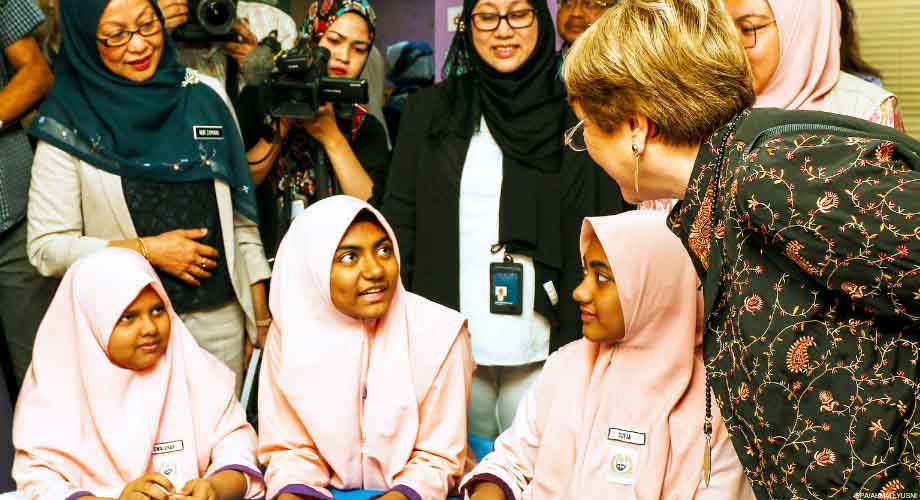advertisement
UN women, HP sign a MoU to enhance digital literacy among women and girls

The UN Women, represented by Mlambo-Ngcuka, the Executive Director Phumzile together with Elisabeth Moreno, the HP Vice President and Managing Director for Africa have penned a Memorandum of Understanding (MOU) to expand digital learning opportunities for women and girls in five priority countries Senegal, South Africa, Nigeria, Democratic Republic of the Congo, and Morocco.
The new collaboration between builds on the existing model of partnership in Mexico where equipment and entrepreneurial online learning courses are offered in digital classrooms to more than 5,000 women under UN Women’s Second Chance Education Initiative with financial support from BHP Foundation. It will also leverage UN Women’s African Girls Can Code initiative, a joint programme of the African Union Commission, UN Women and the International Telecommunication Union.
Across the globe, more than 2.7 billion women are legally restricted from having the same choice of jobs as men. The disparities around access to jobs, training and education are even more acute in crisis and humanitarian situations, where girls are more likely to drop out of school, face wage discrimination or vulnerable employment, unemployment and are less likely to receive social protection.
advertisement
“Education is a fundamental human right that should be available regardless of a person’s gender, class, race or location,” said Elisabeth Moreno, Vice President and Managing Director, HP Africa, adding; “To that end, HP has pledged to enable better learning outcomes for 100 million people by 2025 – a commitment that aligns with the fourth goal of the United Nations’ Sustainable Development Goals: Quality Education. As the world wakes up to the power of women, HP is partnering with UN Women to embrace the power of education and job training to reinvent mindsets, promote careers in technology, and drive systemic change.”
HP’s partnership with UN Women through two UN Women initiatives, Second Chance Education and African Girls Can Code, possesses immense potential to both scale and address the lack of investment in women and affording them access to opportunities for career work and economic growth.
“Today over 131 million girls are out of school, and half a billion women are illiterate,” said Phumzile Mlambo-Ngcuka, Executive Director, UN Women. “We see an urgent need to enable girls and women to gain digital literacy and become economically self-reliant. Bringing together civil society, public, and private sectors, and most importantly, women and their communities, UN Women is seeking to break current trends by creating global solutions and scalable models.”
advertisement